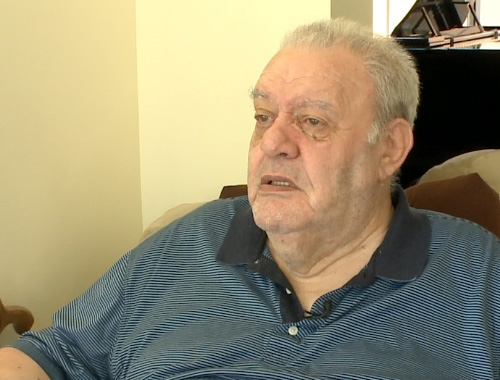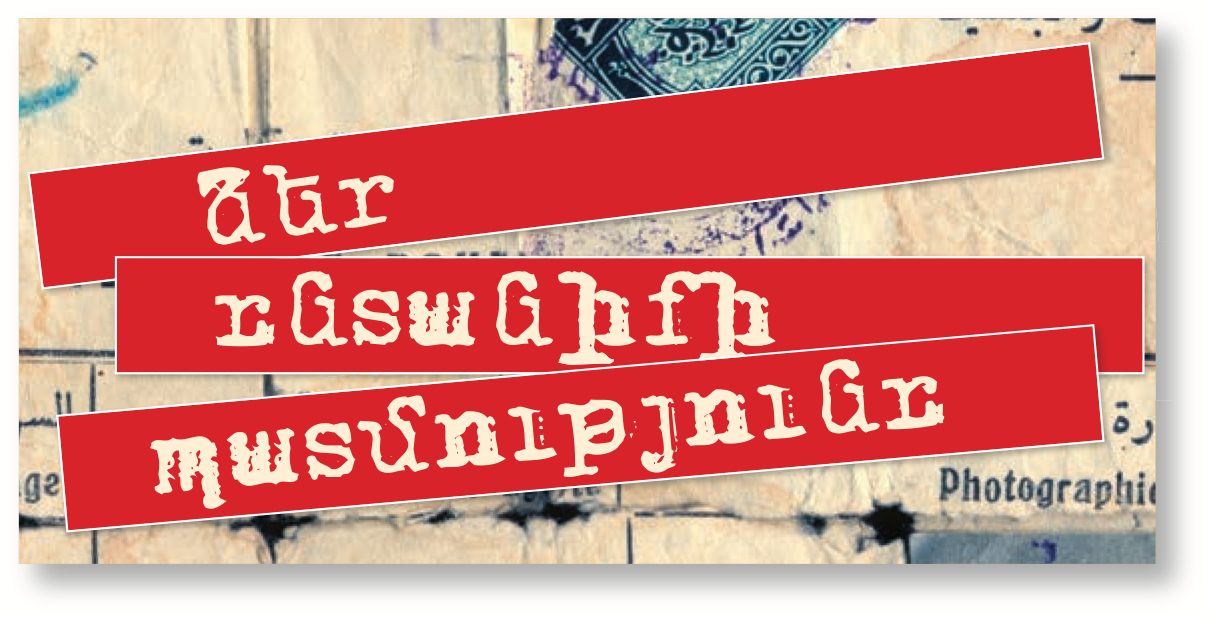 Repatriated from France, 1947 / Resides in Glendale, California
Repatriated from France, 1947 / Resides in Glendale, California
Mardiros Gyulderyan
My parents were common Turkish-Armenian workers. That’s to say they came from Western Armenia. Traveling through various countries after the Genocide, they arrived in France. I was born in Paris. However, in order to obtain permanent residency in France, we could only live in a rural area and engage in agriculture. I spent the first ten years of my life in a village setting in the Bordeaux region.
When we moved to the town of Bordeaux, WWII had commenced. My father was active in politics. Escaping the Genocide as a young boy, he settled in Bulgaria. There, he was in close contact with Georgy Dimitrov, who became the head of the communists in Bulgaria.
My father was a very committed communist. He, and my entire family, participated in the partisan movement in France. We were the Bordeaux support staff for Misak Manouchian. Those who were being persecuted and tracked down in Paris were sent to us. It was our responsibility to conceal them. We faced difficulties as well from the Gestapo because our neighbors betrayed us. But everything ended well.
After the war, they convinced us to go to Armenia. My father, a communist, was quickly convinced. What can I say? We boarded the Rossya ship and left. As soon as we landed in Batum, my father started pulling out his hair saying “What have I done? I’ve destroyed my family.”
Initially, onboard the ship, they coddled us and served us great meals. As soon as we entered the Black Sea, their attitude changed completely. They began feeding us buckwheat porridge, and there were dead flies in it. We realized that they had grossly tricked us.
My father altered his views and realized that the communists were the world’s evilest people. While he had no education, he read quite a bit. He was very engaged in politics.
We were very poor when he left France for Armenia. Very poor. What else could a man working in a village be? And my father had no trade. Our conditions in Armenia were very bad. We hadn’t taken anything to sell, like the other repatriates had done, in order to make some money and buy food.
I was accepted at the foreign language institute and graduated with a ‘red diploma’. I had completed high school in France before moving to Armenia. All I had to do was learn Armenian and Russian. I was lucky to have a great Armenian teacher, Pivazyan, who really inspired me to learn. I didn’t speak Armenian when I arrived, just a few words of western Armenia mixed with Persian.
I was the only one who graduated with the highest honors, the red diploma, but they didn’t keep me at the institute because I was a repatriate. I was sent to the village of Byurakan. During Stalin’s time, they didn’t conscript repatriates into the army, arguing that we had no military training. The truth was they didn’t trust us. After teaching for two years in Byurakan I was suddenly conscripted.
I was the only one with a higher education in our unit. They gave me the lowest job – getting the explosive shells. I was often asked about life in France, etc. I was somewhat naive and told them the truth.
One day, at the unit, a KGB representative summoned me and said, “You know what we do to guys like you who seek to lower the morale of soldiers? You will come with me to the office where we will continue our conversation.” During the Stalin era it was clear that someone could get exiled for at least ten years for something like that. At least. Luckily for me, the next day Anastas Mikoyan gave a speech the next day at the Communist Party Congress and expose the cult of personality policy.
They summoned me to the KGB and the same official told me to forget that discussion that we had. He said I was free and could say anything I wanted. “We are the most democratic country in the world,” he told me. A few days later I was made sergeant, then senior sergeant and senior battery officer. I was also appointed the battalion propagandist. I was discharged after serving three years. And I had learned Russian pretty well.
I got a teaching post at the polytechnic institute, and was later appointed acting department head. The dean summoned me and said, “Join the party and we’ll make you department head.” I told him I wasn’t yet ready. In fact, I really hated the policies of the communists.
The years passed. One day my father grabbed me and said, “My boy, by bringing you here I made you wretched. Swear to me that you will do everything to get the family out of here.”
I wrote to my friends in France, but nothing came of it.
This was after the time that Pineau came to Armenia and the Armenians who had moved from France demonstrated. I was in the army at the time, otherwise I would have been with them. Nothing like it had happened in the Soviet Union; people demonstrating against the government. Had Stalin been alive, the problem would have been dealt with differently.
(French Foreign Minister Christian Pineau visited Soviet Armenia in 1956. A few thousand French-Armenian repatriates seized the opportunity and demonstrated in the streets of Yerevan shouting “Save Us” and “Long Live France”, imploring the minister to take them back to France-ed.)
We stayed until Gorbachev. Almost all the French-Armenians had gone back. We were the few who remained. Had I not been in the army when Pineau visited, we too would have definitely left at the time.
You know, we have searched quite some time for the root of that word akhpar that they called us. Supposedly, it’s the western Armenian for the word yeghbayr (brother). One day we were discussing the matter and Pivazyan said, “Don’t be so naïve. In language, a positive label is never given during negative times. You need to know that the akhpar designation is from the word aghb. (trash – ed.) He presented similar examples from Russian and French. Անգլերեն էլ, ի դեպ կա՝ սեւամորթի վիրավորելիս «թրաշ»՝ «աղբ», բառն են օգտագործում:
Government officials never use the word aghpar. Have you noticed this? But if the word derives from yeghbayr, as explained, then why not use it?



















